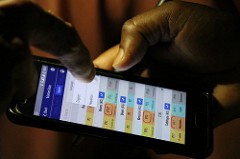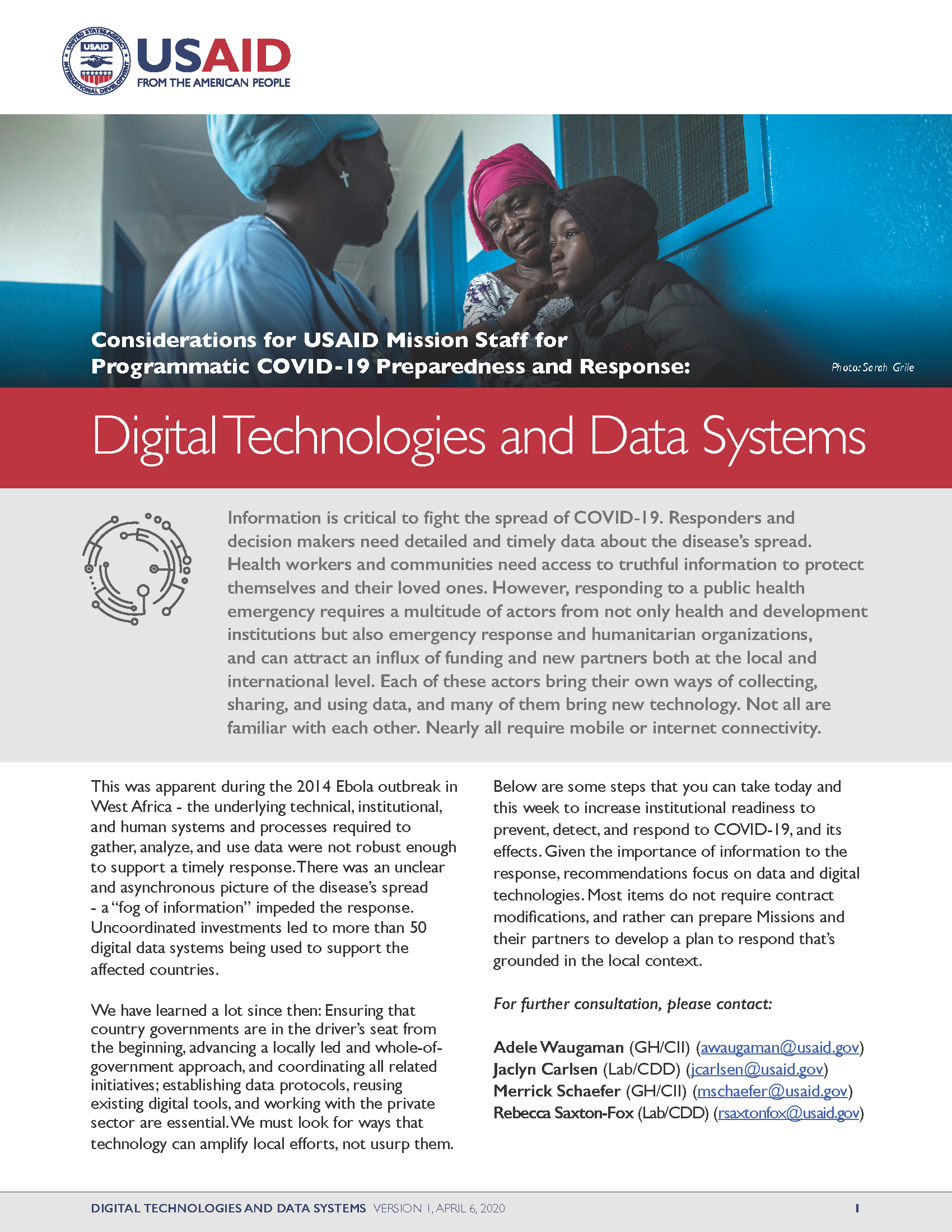- What We Do
- Agriculture and Food Security
- Democracy, Human Rights and Governance
- Economic Growth and Trade
- Education
- Environment and Global Climate Change
- Gender Equality and Women's Empowerment
- Global Health
- Humanitarian Assistance
- Transformation at USAID
- Water and Sanitation
- Working in Crises and Conflict
- U.S. Global Development Lab
Digital Development Content Top
Speeches Shim
When development actors effectively collect and use timely, accurate, and relevant information, it can transform the way they design, implement, and evaluate programs. Instead of reporting on “What happened?,” they can ask “What is happening right now, and how can we adapt?” This shift can mean the difference between health and sickness, resilience and economic vulnerability, and even life and death.
Digital technology offers an unprecedented opportunity to develop information systems that transition away from retrospective, siloed reporting and instead enable a more effective and responsive approach to service delivery. Yet, given the complexity of the challenges and the myriad actors involved, individual programs often create systems that do not integrate with other technologies and mirror older reporting methods, resulting in duplicative work and lost opportunities and therefore slowing countries on their journey to self-reliance.
Collaborating with Agency leadership, USAID Missions, and partners in development and the private sector, the Center for Digital Development’s Development Informatics practice seeks to improve USAID’s investment in and use of information and communication technology (ICT) and the data it produces. The team provides technical support and resources that help the Agency leverage digital tools to better engage stakeholders and create more valuable data for programmatic decision making.
Spotlight
Considerations for USAID Mission Staff for Programmatic COVID-19 Preparedness and Response
Information is critical to fight the spread of COVID-19. Responders and decision makers need detailed and timely data about the disease’s spread. Health workers and communities need access to truthful information to protect themselves and their loved ones. However, responding to a public health emergency requires a multitude of actors from not only health and development institutions but also emergency response and humanitarian organizations, and can attract an influx of funding and new partners both at the local and international level. Below are some steps that you can take to increase institutional readiness to prevent, detect, and respond to COVID-19, and its effects.
Digital Investment Tool ![]() (pdf - 2 MB)
(pdf - 2 MB)
Digital Investment Tool
The Digital Investment Tool is intended to support USAID staff in concretely integrating the Principles for Digital Development into programmatic digital systems through a participatory process with relevant stakeholders. The tool can be used throughout the program cycle, but is tailored for use during work planning and implementation. Use of this resource will support robust development of digital systems that are effective, sustainable, and support the self-reliance of local partners that own and operate these systems.
Real Time Data for Adaptive Management
How can timely data be used to adaptively manage in changing and uncertain environments? What impact can it have in development? Learn some of the key findings and takeaways for policy makers and development practitioners in this series of resources.

Partnering to Create Sustainable Health Information Systems
The Ebola outbreak in West Africa in 2014 and 2015 highlighted the critical need for more effective, sustainable digital health information systems across the region to better track and use data to support healthier communities and stop future outbreaks. Working in partnership with the West African Health Organization, USAID’s Development Informatics practice helped launch the West Africa Health Informatics Team, a sustainable model for supporting these vital systems through locally hired software and informatics specialists.
mHero
Following the West Africa Ebola outbreak in 2014-2015, USAID’s Development Informatics Program assisted in the development of mHero, a text messaging tool enabling the Liberia Ministry of Health to connect with its remote workforce, to help support global health and prevent future disease outbreaks.



Comment
Make a general inquiry or suggest an improvement.